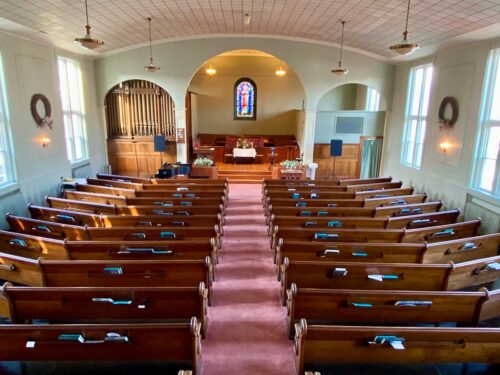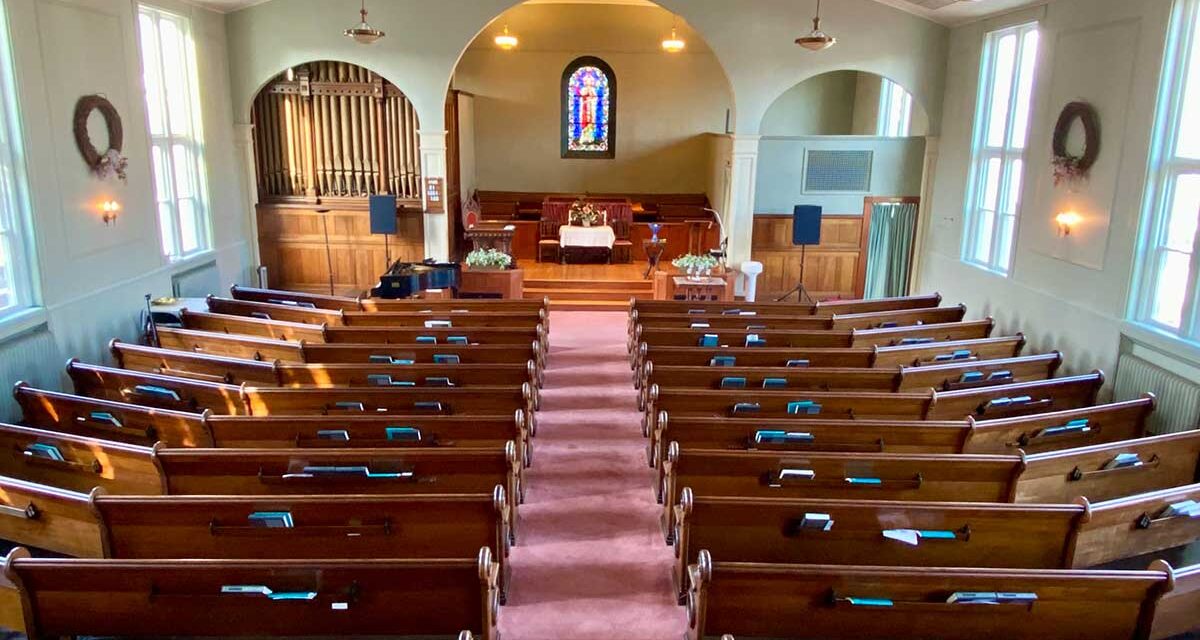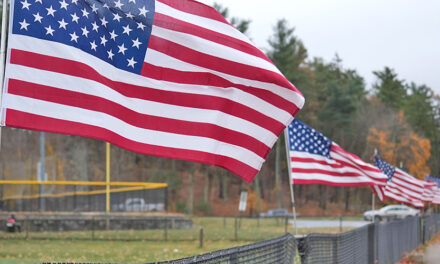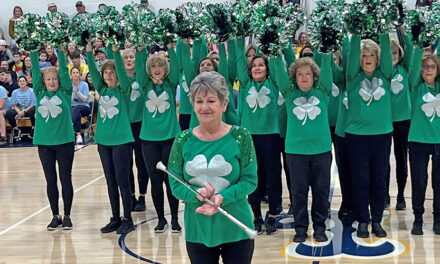‘We bid you farewell, Wakefield.’
WAKEFIELD — The following was submitted by members of the Unitarian Universalist Church of Wakefield.
The Unitarian Universalist Church of Wakefield will hold its final service on Sunday, June 9 at 10:30 a.m. and then turn off the lights in the sanctuary for the last time. A great mix of emotions accompanies this difficult decision.
The church’s long history as First Universalist Society of Wakefield began when seven members of First Parish met in April 1813 at the home of Col. Amos Boardman, long-time superintendent of schools, to form the “Universalist Society in South Reading.” Universalism as a church had begun in 1770 with a doctrine of universal salvation, teaching that all people shall be saved, contrasting with the more traditional Protestant Calvinism based on the idea of humankind’s innate inadequacy. This moment followed a break in 1812 between the town of Reading’s Federalist stance that favored reconciliation with Britain and the general sentiment in South Reading (renamed Wakefield in 1868) of strong support for American sovereignty.
This combination of independence and a loving sense of inclusion has characterized both the soul and the social justice stance of the UU Church of Wakefield over the intervening years. Most recently, three ministries defined at the beginning of the leadership of Rev. Maddie Sifantus in 2009 to express those values were “Welcoming” with a particular focus on LGBTQ issues, “Social Action” supporting many charitable community programs such as the Wakefield Food Pantry and the Refuge Immigration Ministry and “Music” highlighted by ten years of the Standing Room Only concerts.

AFTER 211 YEARS, the Unitarian Universalist Church of Wakefield will close early next month.
In addition to official outreach, members have been among the most active participants in Wakefield projects and programs outside the church. And its ministers and lay leaders have encouraged and supported the comradery of the Wakefield Clergy Association where theological differences can so easily be divisive.
So often financial instability is the deciding factor in existential crises, but here the challenge has been a small congregation tasked with the many moving parts of an active church while confronted by the reality of maintaining and updating the oldest church building in Wakefield. Many physical improvements have been accomplished in recent years, including a new roof, but the long-term requirements for a solid and accessible building are extensive. The most visible issue has been the need to remove and replace a rotting steeple that was twice hit by lightning in 1997. A workable solution for its replacement was difficult to find, so the donors to the Steeple Fund will receive a refund for all formal contributions.
Congregation President Joe Cresta summed up his thoughts and feelings about this poignant moment this way, “It is hard to say goodbye when you have been part of a community for two hundred and eleven years. The UU Church of Wakefield congregation wants to thank you for supporting us by attending concerts, yard sales and auctions, as well as those who shared our space for your recitals, dance classes and family events.
As a non-creedal faith, we were blessed with the opportunity to hear from so many different perspectives on how to love and care for one another more deeply. From Buddhist to Christian to Jewish to Humanist teachings, our lives were enriched. We, the congregants of this church, now leave this sacred space with the warmth of fellowship, the beacons of compassion and the spreading of kindness.
Our enduring legacy will always be the church, which believes in “the inherent worth and dignity of every person and respects the interdependent web of all existence of which we are a part.”
We bid you farewell, Wakefield.





